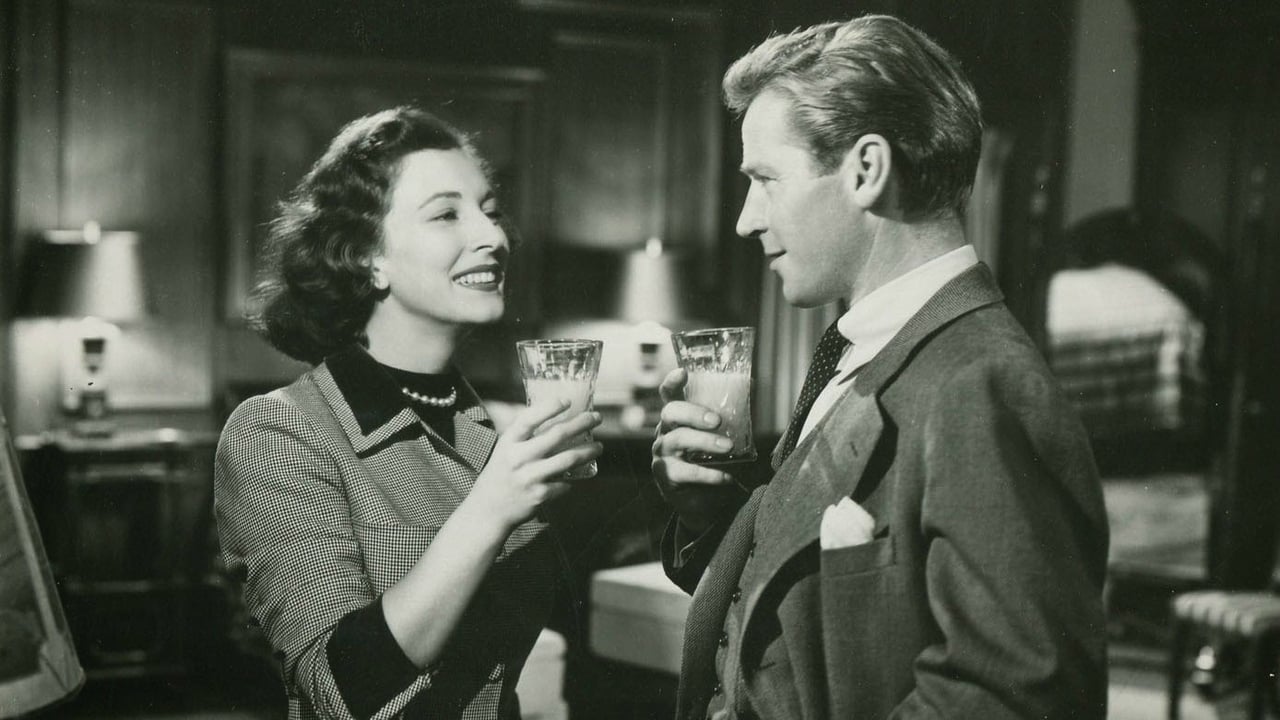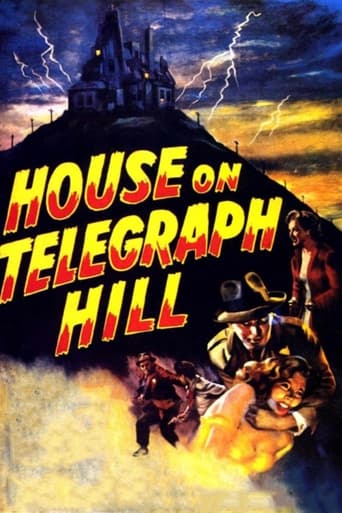BoardChiri
Bad Acting and worse Bad Screenplay
FuzzyTagz
If the ambition is to provide two hours of instantly forgettable, popcorn-munching escapism, it succeeds.
Yash Wade
Close shines in drama with strong language, adult themes.
secondtake
The House on Telegraph Hill (1951)A very solid movie with a bit of a forced hand, and something like a familiar plot in new clothes. The key innovation is that it ties the horrors of a Nazi concentration camp to a conventional American melodrama, and has the lead woman taking on the identity of her best friend in the camps. It is filmed with precision and drama all the way through, and makes a visually strong statement, as well as one with the social message that the adjustments of Nazi victims and their survivors is really hard to fathom. It kludges along a little with a narrative fix to make the information clear and fast at the start, and get us to San Francisco, 1950.The leading character, played by Italian actress Valentina Cortese (though she might well be intended to be a Polish Jew, given her situation in the camp), is very strong, a somewhat awkward leading woman but different than some of the types populating post-war movies. I liked her increasingly, and her difference (as an actress) helps cement her difference (as a character) from her American friends. She deserves our sympathy, and overall she gets it. Oddly, that element of surviving a death camp six years after the liberation of a string of them in Europe from the Nazis, becomes less and less salient, so that when the woman's duplicity is brought up toward the end, the growing male protagonist brushes it off as just one of those things. He's right, really, but the fact that the woman returns and has to pretend to be a young boy's real mother is tough going, if you consider something like the truth of it. It's convenient that the surrogate mother figure, who has apparently done a pretty good job raising the kid, is also a meanie in good Hollywood caricaturing style. The other man in the story, the one who you expect to be on our leading lady's side, turns out to be weak, duplicitous, and a bit of pretty wash by the end.Robert Wise is one of those smart directors who seems to make something unique happen no matter what the material. And the odd angles to this story, even with the inevitable outcome, make it really good.
kenjha
A concentration camp survivor assumes the identity of a wealthy woman who dies on her way to America. It doesn't get off to a great start, but gets better as it goes along. The San Francisco locations are gritty. Wise creates a terrific atmosphere and ratchets up the suspense to Hitchcockian levels. There's even a scene involving a glass of juice that is reminiscent of the glass of milk in "Suspicion," and the maid played by Baker is like Judith Anderson in "Rebecca." There are good performances from Cortese as the woman who comes to regret her get rich quick scheme and Basehart as her sinister husband; the two actors married during the filming.
robert-temple-1
The interesting American career of Italian actress Valentina Cortese met a high point here, in one of her best known films. The next year, she gave an even better performance in SECRET PEOPLE (1952, see my review), but here she is also excellent. Here she plays a Polish woman (whereas in SECRET PEOPLE she is Italian), presumably based upon the theory that one foreign accent sounds like any other to the Americans, and with those exquisitely sensitive eyes she might as well be Polish, indeed from anywhere she says, because we believe her. The story commences in the grim surroundings of Belsen, where she and a woman friend are imprisoned by the Nazis. Her friend dies three days before the American liberators arrive, and Valentina assumes her identity because at least the friend has a son in America, while she has no one and nothing left, and anyway she speaks English with an Italian accent so that's OK then. This eventually leads her as a displaced person to New York, where she meets an intimidating lawyer and the sinister Richard Basehart, who is guardian of 'her' young son, who is named Chris and lives in a big mansion on Telegraph Hill in San Francisco. The American Major who interrogated Valentina at Belsen turns up at a party, as American Majors do in films, especially when they are played by handsome and reliable William Lundigan, and she turns to him for help because she is becoming worried by Richard Basehart, who married her as soon as he saw her in New York, and she soon realizes it was really to secure his position in control of the large family fortune. Yes, the story is pretty far-fetched. Robert Wise does his usual superior job of directing, but this script needs more than that. Despite the fact that this film is largely set on Telegraph Hill, it is not one of those hills which is alive with the sound of music. There is a playhouse at the bottom of the garden with a big hole in the floor through which one can fall 300 feet to one's death. It has been sitting there like that for four years 'since the explosion'. For such a large and carefully-kept mansion with a Chinese butler, there is a distinct shortage of maintenance in the garden despite its impeccably cut lawn! Naturally, Valentina falls down the hole when she is cornered there by Basehart, but he grabs her hands and saves her from death. But that is only a temporary respite, for there is the poisoned orange juice to come. Oh, but between those two events, there is the brake fluid drained from the car. And you know how steep those San Francisco hills are without brake fluid. She is saved by a pile of construction sand onto which she lands when the car crashes and she is thrown out. Everything about this story is perfectly natural and happens every day. Valentina loves 'the feel of silk on my skin again' after her sufferings at Belsen, and she has a very sweet nature, but there is a creepy woman named Margaret in the house (played by the eerily forbidding Fay Baker) who is very possessive of the little boy Chris, whose only interest appears to be baseball and is played by a child actor named Gordon Gebert who has a rather annoying voice and is badly handled on screen. Robert Wise had clearly not learned the art of directing children yet. The tension mounts as we slowly climb the Telegraph Hill of this story, and the tale becomes increasingly Gothic and less and less convincing. Will Valentina, who survived Belsen, also be able to survive Basehart's machinations to do her in and have the money to himself? It is very much touch and go and I ain't sayin'.
writers_reign
This was one of several more or less ho-hum features that Robert Wise directed between The Set-Up and Somebody Up There Likes Me. In some ways it's a prototype of Dial M For Murder with a would-be murder victim wife (Valentina Cortese) turning to family friend (William Lundigan) when she suspects her husband (Richard Basehart) is attempting to administer poison where it will do the most good. Blended to this is the 'Captive Heart' element in which a desperate person steals the identity of a dead person in wartime (a gimmick also used by novelist Cornell Woolrich/William Irish to great effect). Cortese is effective as the protagonist who, in stealing the identity of a fellow inmate of Belsen, puts herself in line for a fortune which Richard Basehart has schemed to make his own. Although a decent enough actor Basehart lacked charisma as did the third lead William Lundigan whose range extended from A to about F. Despite this Wise turned in a fairly gripping semi-noir that's certainly worth a look.

